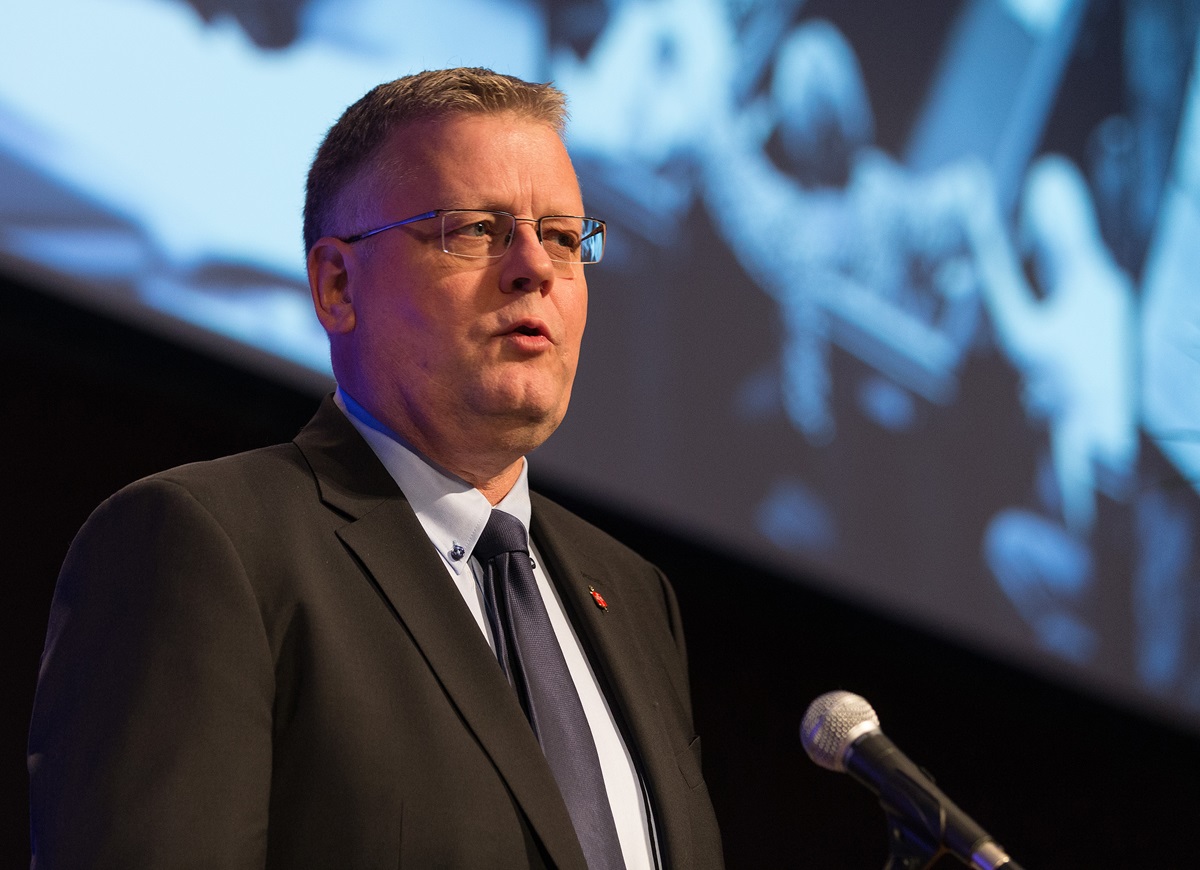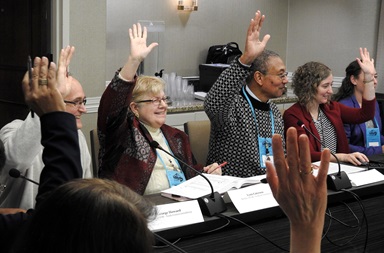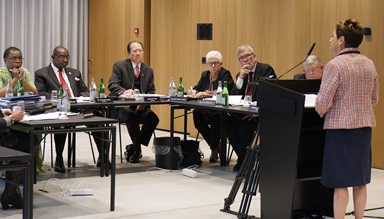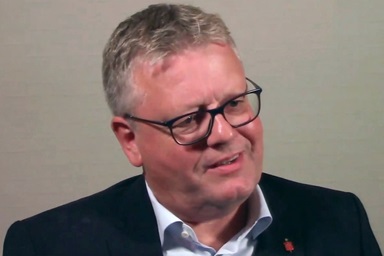European and Eurasian delegates to the upcoming special session of General Conference met on their own recently, and they made clear their unhappiness with some activities of caucus groups within The United Methodist Church.
“Many expressed concern over the political maneuvering and lobbying that takes place before and during General Conference and found such behavior difficult to reconcile with their understanding of how the church should conduct its decision-making processes,” said Bishop Christian Alsted, who oversees the Nordic and Baltic Area.
Forty delegates from Europe and Eurasia gathered Jan. 11-13 in Braunfels, Germany, to reflect and pray before the General Conference.
That denomination’s legislative gathering, called by the Council of Bishops to try to address longstanding, schism-threatening division over homosexuality, is set for Feb. 23-26 in St. Louis.
Bishops do not vote at General Conference, but Alsted and Bishops Patrick Streiff (Central and Southern Europe Area), Harald Rückert (Germany Area) and Eduard Khegay (Moscow Area) were in Braunfels to lead worship and facilitate the plenary conversation.
Alsted, who filed a written report and answered questions by email, addressed the mood at the Braunfels meeting.
“The delegates expressed concern about the future of the denomination, but at the same time the atmosphere was hopeful, and several lifted up the desire to remain united and in the very diverse contexts in Europe and Eurasia to promote the mission of making disciples of Jesus Christ for the transformation of the world,” he said.
The Council of Bishops created a Commission on a Way Forward, whose final report includes three legislative plans to be considered in St. Louis.
The One Church Plan, supported by most bishops, would remove official language that the practice of homosexuality is “incompatible with Christian teaching.” It also would let U.S. conferences, churches and pastors decide for themselves about ordination of gay clergy and hosting and performing same-sex unions.
This plan also would allow central conferences, church regions in Africa, Europe and the Philippines, to continue adapting parts of church law and retain traditional language and values.
The Traditional Plan would retain the “incompatible” language as well as restrictions against same-sex unions and ordaining gay clergy. It would also strengthen enforcement against violators.
The Connectional Conference Plan would reorganize the denomination, allowing those with similar perspectives on homosexuality to conference together.
Other plans and individual petitions also will be considered in St. Louis.
In the Braunfels meeting, delegates did not vote on endorsing on any of the legislative plans.
Alsted said they did vote unanimously to propose an amendment to the One Church Plan specifying that legislation passed at the special General Conference does not take effect in the non-U.S. central conferences until 12 months after the regularly scheduled 2020 General Conference. The One Church Plan at present gives the shorter period of 18 months after the St. Louis conference.
Alsted said the amendment would “prevent a legal vacuum” for central conferences, giving them time to meet and decide on adaptations to the approved legislation, as allowed by church law.
Rückert elaborated on the need in an email.
“This amendment is crucial to provide enough time for translation of a very difficult issue and portion of the Book of Discipline in several languages, in order to give the central conference delegates a fair chance to deliberate and prepare for a decision that might be necessary,” he said.
As for lobbying on behalf of legislation plans, Alsted said the delegates mentioned letter-writing, emails and visits from a range of caucus groups seeking to influence voting.
He described that as “far from how United Methodists in Europe operate.”
Rückert agreed.
“Lobbying and forging alliances prior to the conference in order to fight each other are not part of our conference culture,” he said.
Alsted said in his written report that the Braunfels meeting showed United Methodists in Europe and Eurasia hold strong convictions but converse respectfully and “avoid creating winners and losers.”
Hodges is a Dallas-based writer for United Methodist News Service. Contact him at 615-742-5470 or newsdesk@umcom.org. To read more United Methodist news, subscribe to the free Daily or Weekly Digests.
Like what you're reading? Support the ministry of UM News! Your support ensures the latest denominational news, dynamic stories and informative articles will continue to connect our global community. Make a tax-deductible donation at ResourceUMC.org/GiveUMCom.




